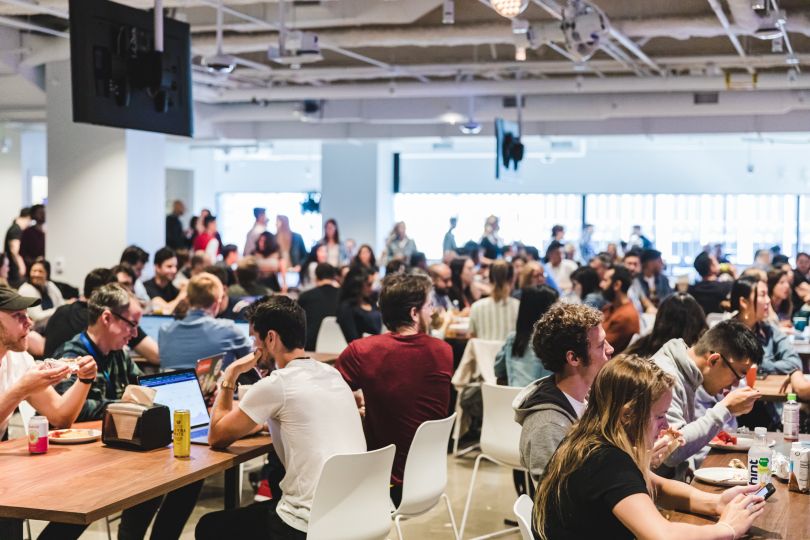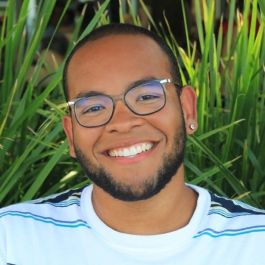The current job market belongs to the candidates.
According to the Bureau of Labor Statistics, by the end of September there were over 10 million job openings across the country. For those who are looking for work, that means that they have the luxury of choice. For those who are hiring, it means they have to work harder to stand out. The best way to court new employees? Focus on what they want in a candidate experience and workplace: transparency and solid core values.
A company’s values are paramount for potential and current employees. As such, it’s not just important to have strong values, but to be honest about them from the first conversation — if it turns out that the company doesn’t measure up to their stated values, the new hire isn’t likely to stay long. And that isn’t the only thing a company needs to be transparent about during the hiring process — according to Recruiting Daily, 61 percent of job searchers are more likely to apply to a position that has a listed salary range. No one wants to go through the interview process only to discover that their compensation needs cannot be met; being upfront about pay and benefits will not only entice applicants, but cultivate a climate of trust between company and candidate.
There is a fear that “warts-and-all” transparency could drive a quality candidate away. However, an honest job description and candid interview will help both job seeker and employer find the right fit for a long-term relationship.
Built In NYC sat down with five New York tech companies that have a policy of transparency and empathy in place for their candidate experience that has paid off in recruitment success. Employees from Coinbase, Seatgeek, Lightyear Health, VTS and Refersion spoke at length about the values they support in their hiring process and how they have improved the experience for everyone involved — recruiter and recruited alike.

What is the most important thing you want candidates to learn about your company, and how do you communicate it during the hiring process?
At Coinbase, we want candidates to see that behind the news articles and price alerts. We have an incredibly talented group of people from diverse backgrounds working hard on some of the biggest technological innovations in the world today.
As a remote-first company, we have the luxury of hiring people across the world, not just near a physical office. The crypto industry — perhaps more than any industry today — is distributed by nature. We know that top talent is not exclusive to a few major cities. As a crypto company, we are building the future of finance and need different perspectives to accelerate our growing industry. We are hiring people with experience in tech, financial services, blockchain, consulting and many other backgrounds to help us.
In our hiring process, we aim to give every candidate deep insight into the company, our people, our culture and the work they will be doing. Our interviews are structured so that candidates speak not just with recruiters or managers, but also with peers and cross-functional partners. We also include a collaborative real-world work example to reveal the type of projects and team environment they would encounter at Coinbase.
What are three ingredients that create a great candidate experience?
Our first ingredient is transparency. Ambiguity about the role or recruiting process only leads to confusion and mutual wasted time. When you clearly share what a candidate can expect, you allow them to focus on putting their best foot forward. We want every candidate who interviews with us to understand what it’s like in their role at Coinbase, how the interview process works and what success looks like.
The second is speed. We are actively working to improve here, because we know that job searching is a hard enough task without dragging out the process. Our goal is to have every candidate feel like they had a fair and fast experience, regardless of the outcome.
The third ingredient is empathy. No two candidates are the same and we should never treat them as such. We also appreciate that a candidate is interviewing us just as much as we are interviewing them. Too many times I see companies treat recruiting as a one-way street to get a hire, without turning the mirror on themselves for the candidate’s benefit. At Coinbase, we strive to show what it’s really like here and have as many conversations as needed to help a candidate make the best decision.
Too many times I see companies treat recruiting as a one-way street to get a hire, without turning the mirror on themselves for the candidate’s benefit.”
How has your candidate experience changed over time, and why did you enact those changes?
The difference between our candidate experience now and back in 2018 when I joined is night and day. When I joined three and a half years ago, Coinbase was a 400-person company largely based in San Francisco. Today, Coinbase is remote-first with over 2,700 employees helping build the future of finance across the Americas, Europe and Asia.
Being a remote-first company means our employees and candidates have more flexibility to adapt work and interviews to their schedule. We’ve added tech tools to improve the speed and fidelity of our recruiting process, and added assessments and time zone coverage to allow candidates to proceed as it fits best in their schedule, as opposed to biasing towards folks who can take time off to interview.
We have also focused on proactively sharing “the really real” about the employee experience and not sugar coating our company. We’ve published our mission, focus and culture, and we tell everyone that this is a place you will come to do the best work of your life, not a place you join to “rest and vest.” If you’re the person who picked up the slack in group projects at school and loves to build products over process, imagine how much you can get done here.
What is the most important thing you want candidates to learn about your company, and how do you communicate it during the hiring process?
Our values and mindset as a company are the most important things for candidates to learn about VTS during the hiring process. Learning about our product and the role’s day-to-day activities are all straightforward topics that can easily be touched on, but placing an emphasis on something such as following values with a certain mindset requires that extra step. It’s important for candidates to learn how our values — “move as one” and “be customer obsessed,” to name a few — play a part in every role at VTS.
That is why we have every candidate, no matter the level of seniority, complete a values interview. This separate interview is a way for us to show candidates how we embody our values everyday and for them to learn about each one in more detail. We want every candidate to be a fan of VTS no matter the outcome of the hiring process and I think our values-centric approach really helps with that.
What are three ingredients that create a great candidate experience?
Responsiveness, transparency and empathy are needed to create a great candidate experience. Having empathy is a strong foundation; being able to put yourself in the candidate’s shoes will really help provide a positive experience. You also need to be transparent and set clear expectations so the interview process has no curve balls that would impact the candidate. Finally, being responsive is super important to candidates. The job search process can be very daunting, so making sure you are responding in a timely manner and getting back to candidates to answer their questions and concerns leads to a great experience.
It’s important for candidates to learn how our values play a part in every role at VTS.”
How has your candidate experience changed over time, and why did you enact those changes?
While acclimating to a remote environment, our talent acquisition team has had to make adjustments to make sure the candidate experience still remains smooth. We created new materials, such as a video interview guide, that we attach to every interview confirmation email. This type of document comes in handy to candidates — many questions they might have about the process and interviewing remotely are already being presented to them. This has certainly helped in saving some back and forth. Additionally, we have made it a priority to shorten some parts of the interview processes; this creates a concise and overall more positive experience for candidates.

What is the most important thing you want candidates to learn about your company, and how do you communicate it during the hiring process?
Transparency is ingrained in SeatGeek culture, so we aim to be transparent throughout our hiring process. Whether sharing the interview steps on our jobs page or walking through it on the phone, we give candidates insight into what to expect throughout the process. We provide virtual prep docs that include tips for interviewing remotely, what to expect in the interviews and more.
What are three ingredients that create a great candidate experience?
Personalization, transparency and speed. No one likes waiting weeks to hear back after an interview, nor do they appreciate lack of feedback or a stock email rejection. We do our best to put ourselves in candidates’ shoes and recognize any update is better than nothing. We try to hold ourselves to reaching out within a week for each stage. If we don’t have an update, we’ll provide a “non-update” where we give them a better timeline and let them know they are still our priority.
We do our best to put ourselves in candidates’ shoes and recognize any update is better than nothing.”
How has your candidate experience changed over time, and why did you enact those changes?
I’ve been at SeatGeek for nearly five years starting as the recruiting coordinator. I think we’ve done our best to consistently ensure we are personalizing and differentiating the process. We used to invite candidates into our offices and give them a tour, have lunch and show them more about our culture that way. We wanted to figure out a new way to provide the same experience remotely, so we worked with our creative team to create a virtual welcome to SeatGeek deck. It includes photos, videos and insights into our company culture so candidates can feel connected.
What is the most important thing you want candidates to learn about your company, and how do you communicate it during the hiring process?
There’s no shortage of health technology companies, but none of them share our focus on changing what it means to age by bringing specialized care to settings that need it the most. It’s essential for all candidates to understand what we do, why we do it and how the particular role they’re interested in ladders up to that broader mission. We communicate this by ensuring that recruiters are well-versed in the business — including the specific health issues we address and why they’re typically overlooked, the settings in which we do this work and how our proprietary technology creates superior experiences for patients, providers and administrators.
Our recruiters also convey our cultural values and ways of working — which center on setting ambitious goals, holding ourselves and others to high standards, remaining disciplined and analytical and “walking the walk” to foster a truly equitable and inclusive environment. Our belief is that this education builds investment throughout the interview process, creating a deeper sense of purpose when people join.
What are three ingredients that create a great candidate experience?
The first ingredient is full transparency. Our job descriptions are specific and concise, offering a succinct view of what we’re looking for in terms of core competencies and a clear sense of what each person will be accountable for owning and driving. We also publish the anticipated salary ranges and our broader compensation philosophy — which isn’t a common practice, but it’s something we see as necessary to building an equitable organization. It also helps us avert biased hiring practices that reward more seasoned negotiators.
The second ingredient is a high “say/do” ratio with the recruiter; our team holds themselves accountable for timely, reliable and thorough updates. This builds trust and good will, which makes candidates who receive offers more likely to join and leaves all candidates feeling positive regardless of the outcome.
The last ingredient is an interview panel that asks varied, rigorous and engaging questions. There’s a misapprehension that interviews are either rigorous but uninviting or friendly with soft-ball questions; we believe it can and must be both.
It’s essential for all candidates to understand what we do, why we do it and how the particular role they’re interested in ladders up to that broader mission.”
How has your candidate experience changed over time, and why did you enact those changes?
We’ve made quite a few changes, each of which was designed to increase visibility regarding Lightyear Health’s mission, vision and values, as well as the team and role in question. Some of these changes were straightforward, such as streamlining our job descriptions and creating an FAQ document for candidates who advance to the offer stage; others entailed more discussion and reflection, such as publishing compensation ranges in a way that levels the playing field for all candidates.
We’ve also invested in training our team members to be objective and process-oriented in each step of the hiring process, from opening new requisitions to standardizing questions. In the coming weeks, we’re rebooting interview training into two distinct sessions — one on structured interviews, asking high-output questions and being a steward for our company brand, and another on understanding what unconscious bias is and how to be proactive in mitigating against it. The trickle-down effects of this will ensure that candidates put their best foot forward. The thing we’ve held constant is the energy and passion among our interviewers, which we know is essential for an outstanding candidate experience.
What is the most important thing you want candidates to learn about your company, and how do you communicate it during the hiring process?
Our ultimate goal throughout the hiring process is to provide clarity about how our company culture functions in two capacities: What we permit and what we promote.
Our culture and how we do things is our key differentiator. With clear communication at the forefront of our hiring strategy, candidates gain a higher level of insight into our company values and how these values remain present in our daily work. As a company in the technology space, monetary compensation can often cloud other significant motivations of a potential employee. For this reason, we prioritize discussing long-term motivational drivers as to why a candidate may find Refersion’s culture and values more attractive as they are navigating their next career move.
What are three ingredients that create a great candidate experience?
Three key ingredients that create a great candidate experience are transparency, training and timing. Transparency must be present in every aspect, beginning with the description of the role itself, the key criteria we use to evaluate the best hire, our overall process and what we will provide in exchange — compensation, benefits, training and so on.
Secondly, providing training and education to our hiring team is pivotal to delivering on our vision of the candidate experience. Hiring is hard and most interviewers are not formally trained. Providing the necessary training, structure and tools for interviewers to execute a great conversation with a candidate is a must.
Lastly, timing can make or break a deal with a candidate. We want to have the appropriate infrastructure in place that will allow us to make confident decisions in a reasonable time frame, especially in today’s talent landscape. In the end, we hope to leave candidates feeling that this was the best interview process they’ve ever had, regardless of getting the job or not.
In the end, we hope to leave candidates feeling that this was the best interview process they’ve ever had.”
How has your candidate experience changed over time, and why did you enact those changes?
Our company has experienced significant growth in the last year, requiring our team to adapt to the quickly changing environment. Since taking on this role at Refersion three months ago, I have not only tripled my team but also hired a dedicated senior talent acquisition specialist to take over management of the complete recruitment life cycle. We are building structure, providing training and implementing tools to help us execute our vision to ensure Refersion is an employer of choice to attract highly-talented individuals. These changes allow our talent team to act as strategic business partners to hiring managers, help us scale with intention and accountability, ensure we deliver a best-in-class candidate experience and establish our employer brand in the market.













